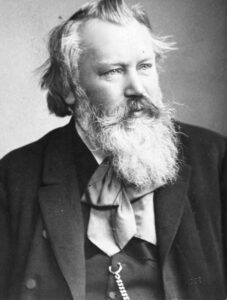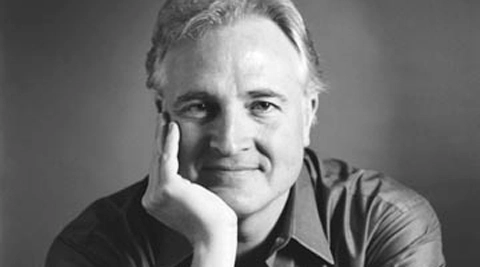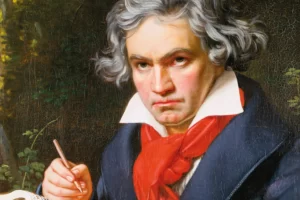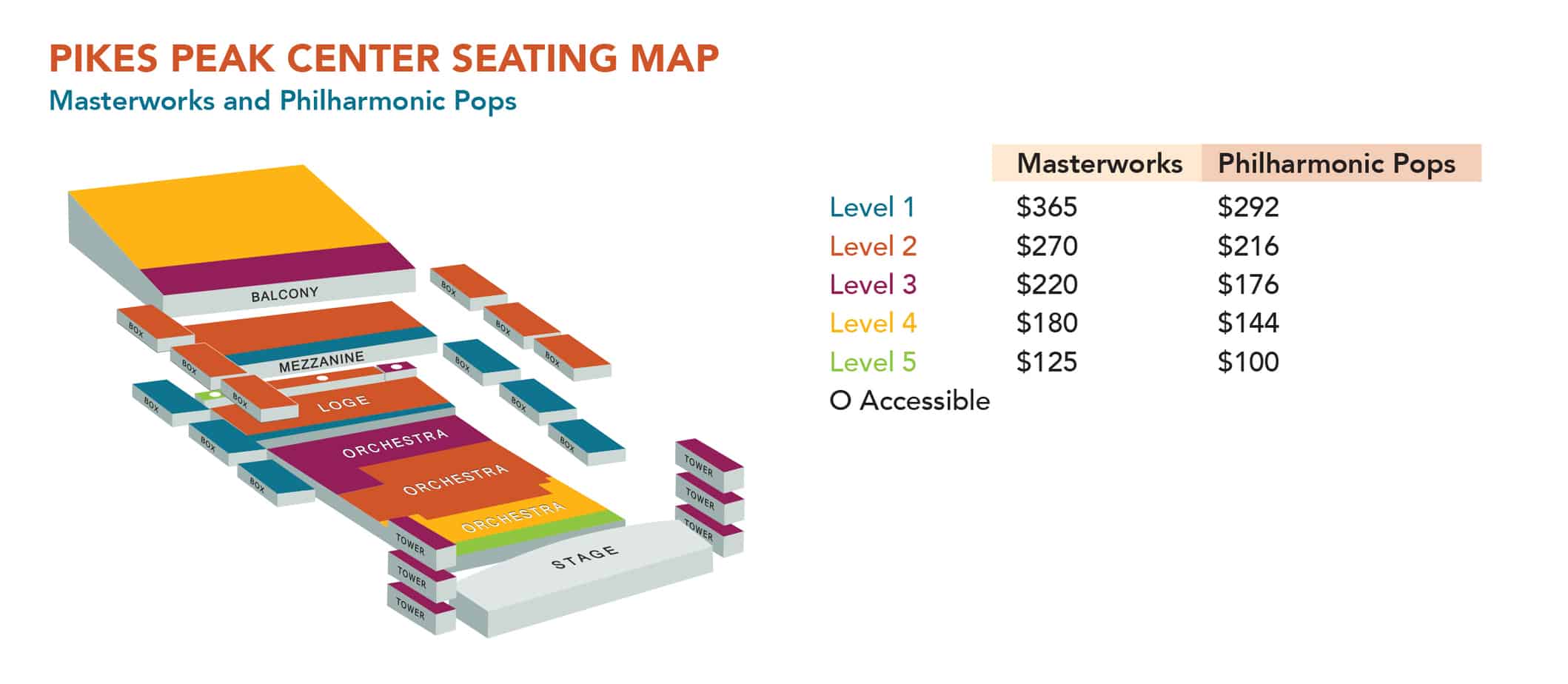


Brahms & Beethoven
190 S. Cascade Ave
Colorado Springs,
CO
80903
United States
+ Google Map
Program
Brahms Schicksalslied, Op.54
Paul Moravec Montserrat: Concerto for Cello and Orchestra
Beethoven Egmont
About The Performance
Brahms scored his Schicksaslied (Song of Destiny) as a man haunted by fate and longing for divine connection. Philharmonic cellist Leah Hansen takes on Paul Moravec’s “Montserrat” concerto. Beethoven’s Egmont, the complete incidental music for Goethe’s play of the same name, is performed here with soprano and narrator to tell the complete heroic tale of defiance.
Join us for Colorado Springs Philharmonic Pre-Concert talks. Go behind the curtain and inside the score with these 30-minute pre-concert conversations featuring conductors and guest artists giving their take on the program. Talks begin one hour before performance time.
Read More
Schicksalslied (Song of Fate),
Op. 54
JOHANNES BRAHMS (1833 – 1897)
Composer: Born May 7, 1833, Hamburg; died April 7, 1897, Vienna
Work composed: 1868-1871
World premiere: Brahms conducted the premiere in Karlsruhe on October 18, 1871
Instrumentation: SATB chorus, 2 flutes, 2 oboes, 2 clarinets, 2 bassoons, 2 horns, 2 trumpets, 3 trombones, timpani, and strings
In 1868, Johannes Brahms traveled to the northern German city of Oldenberg to visit friends. While there, he came across the 1798 poem “Hyperions Schicksalslied,” (Hyperion’s Song of Destiny) by the German poet Friedrich Hölderlin. Brahms, reportedly “stirred to his depths” by Hölderlin’s words, began sketching music for Schicksalslied that same afternoon. Hölderlin’s poem contrasts the serenity of “heavenly ones” untroubled by the vagaries of fate, who gaze outward with an eternal calm, with the unpredictable, sometimes tormented experiences of humans on earth (“Suffering humans decline and blindly fall from one hour to the next … down into the Unknown.”). The philosophical implications of these verses appealed to Brahms, who had completed his humanistic, ecumenical German Requiem three years earlier. Brahms intended his Requiem to speak to as wide a circle of people as possible, and offer solace to the living, rather than exalt the dead. To that end, Brahms pointedly omitted any references to Jesus Christ in the texts he set, but instead focused on the consoling nature of a universal God.
In Schicksalslied, Brahms continued this philosophical journey, to the point that he musically transformed Hölderlin’s conclusion of despair into a serene meditation on the up-and-down nature of a life that offers some hope even when all feels hopeless. Brahms, aware that his own beliefs contradicted Hölderlin’s words, remarked, “I am saying something the poet does not say.” Musically, Brahms accomplishes this by faithfully reflecting the emotions Hölderlin’s three-verse poem evokes. After the chorus finishes singing Hölderlin’s words, however, Brahms adds an orchestral postlude, a partial reprise of the serene introduction. The timpani, as in the Requiem, provide a human heartbeat that softly pulses throughout. Using the timpani, Brahms subtly links divine ecstasy with human tribulation, suggesting, unlike Hölderlin, that the distance between them is not impossible to bridge.
Montserrat: Concerto for Cello
and Orchestra
AUL MORAVEC (BORN 1957)
Composer: born November 2, 1957, Buffalo, NY
Work composed: completed in 2001
World premiere: Ken Tritle conducted cellist Arthur Fiacco and an orchestra at the church of St. Ignatius Loyola in New York City in November 2001
Instrumentation: solo cello, 3 flutes, 2 oboes, 3 clarinets, 2 bassoons, 2 horns, 2 trumpets, trombone, timpani, chimes, percussion, and strings
The music of Paul Moravec has been praised as “tuneful, ebullient and wonderfully energetic” (San Francisco Chronicle), “riveting and fascinating” (NPR), and “assured, virtuosic” (Wall Street Journal). Moravec, who won the Pulitzer Prize for Music in 2004 for his chamber work Tempest Fantasy, has composed more than 200 works in a wide variety of genres. Best known today for his large-scale vocal music, Moravec’s current project, All Shall Rise, an oratorio about the history of voting rights in America, will receive its world premiere at Carnegie Hall in 2023. The composer writes, “The idea for Montserrat occurred to me when I happened upon a statue of Pablo Casals at the legendary mountain monastery north of Barcelona in 1994. The concerto gestated over a period of several years and I finally finished it at the MacDowell Colony in the summer of 2001.
My memory of its premiere in Manhattan that November is colored by the lingering fear and uncertainty all New Yorkers experienced following the 9/11 attacks, but also by the determination to get on with making music. Cellist Arthur Fiacco and conductor Kent Tritle presented the premiere at Kent’s professional home, the church of St. Ignatius Loyola, which is especially apt in light of St. Ignatius’s own historical and spiritual identification with the monastery at Montserrat.” Moravec’s music creates a montage that evokes both the physical beauty surrounding the monastery and the spiritual significance of the place for both Casals and Moravec.
A rising three-note motif, excerpted from a plainchant Claudio Monteverdi used in the “Magnificat” from his Marian Vespers of 1610, forms the foundation for Moravec’s concerto. The emotional resonance of the music, punctuated by distant chimes, sounds through several sections, which are by turns glorious, contemplative, expansive, intimate, lush, and austere. The solo cello, representing Casals and also the impressions of Montserrat as a physical place, lends a human dimension to an experience that is spiritual, physical, temporal, and ultimately profound.
Egmont, Op. 84
LUDWIG VAN BEETHOVEN (1770 – 1827)
Composer: born December 16, 1770, Bonn; died March 26, 1827, Vienna
Work composed: October 1809 – June 1810
World premiere: Beethoven conducted the first performance on June 15, 1810, in a performance of Goethe’s play, Egmont, at Vienna’s Hoftheater.
Instrumentation: piccolo, 2 flutes, 2 oboes, 2 clarinets, 2 bassoons, 4 horns, 2 trumpets, timpani, and strings.
When Vienna’s Court Theatre approached Ludwig van Beethoven with a commission to write music for a revival of Johann Wolfgang von Goethe’s tragic play Egmont, Beethoven responded eagerly. Beethoven revered Goethe, calling him “the foremost German poet,” and Beethoven was also drawn to the subject matter of the play, which revolves around the actions of the Flemish Count Egmont, a historical 16th century figure. Egmont fought to save his country from military conquest by the Spanish Duke of Alba, and was later executed for his actions. Egmont’s heroism and self-sacrifice inspired his beleaguered countrymen to continue their fight for their eventual freedom. Beethoven, also of Flemish descent, may have seen something of himself in the noble Egmont. The themes of struggle against an oppressor, sacrifice, and abiding love resonated deeply with Beethoven; he later incorporated them into his only opera, Fidelio.
The Overture begins somberly, with blasts of sound announcing the arrival of the Spanish. The introduction segues into an energetic Allegro that captures the indomitable spirit of the popular revolt against the Spanish; the music also highlights Egmont’s heroism in the struggle to save his people. There is a noble rhythmic motif, which Beethoven develops throughout, and the overture ends on a victorious shout. Beethoven’s complete incidental music consists of the overture, three additional orchestral pieces, four entr’actes, and two songs written for Claire, a fictional character invented by Goethe to act as a romantic foil for Egmont (according to historical documents, when these events took place in the 1560s, Egmont was a married man with eight children). Beethoven’s music, more than simple accompaniment to the theatrical action onstage, lends added drama and narrative detail to the story.
Claire’s first song celebrates her beloved Egmont’s bravery as he prepares to lead his troops against the enemy: “The drum rolls! Play the fife! My beloved commands the troops, his lance held high … if only I could fight at his side …” After Egmont departs, Claire rejects an unwanted suitor and the citizens of Brussels gather in the streets (Entr’acte I). Egmont and William of Orange debate the merits of confronting the Spanish head-on or taking a more cautious approach (Entr’acte II). In her second song, Claire describes her love for Egmont, which encompasses the total spectrum of feeling from exalted to joy to profound pain. A solo oboe extends Claire’s song, which is interrupted by the third Entr’acte announcing arrival of the Spanish, led by the Duke of Alba. After Egmont’s capture by the Duke, the Flemish nobleman laments his fate in his prison cell; the gravity of the music in Entr’acte IV signals Egmont’s imminent execution.
Claire, hearing of her beloved’s death sentence, drinks poison in a poignant orchestral interlude; the solo oboe announces her death. Egmont, now resigned to his own death, imagines the ultimate victory for his Flemings over the Spanish. The music reflects Egmont’s acceptance of his circumstances, while the somber mood gradually lightens in anticipation. A solo trumpet heralds Egmont’s vision of triumph and victory, and the Overture’s exultant ending sounds again.
Read LessConcert Sponsors
Richard and Sandra Hilt
Eileen Nobles and Robert Odien
Concert Co-Sponsors
Phil and Meg Kendall
Guest Artist Sponsors









